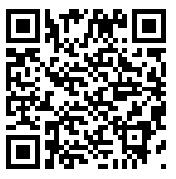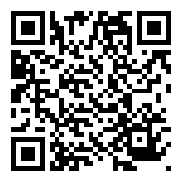Zakat
Zakat is a form of giving to those who are less fortunate. The word Zakat means both ‘purification’ and ‘growth’
Our possessions are purified by setting aside a proportion for those in need, and, like the pruning of plants, this cutting back balances and encourages new growth. This is one of the most important principles of Islam, all things belong to Allah (swt), and that wealth is therefore held by humans in trust.
It is obligatory upon all Muslims to give 2.5 % of wealth and assets each year (in excess of what is required) to the poor. Zakat is the amount of money that every adult that is mentally stable, free, financially able Muslim, male and female, has to pay to support specific categories people. This category of people is defined in surah at-Taubah (9) verse 60: “The alms are only for the poor and the needy, and those who collect them, and those whose hearts are to be reconciled, and to free the captives and the debtors, and for the cause of Allah, and (for) the wayfarers; a duty imposed by Allah. Allah is knower, Wise. “(The Holy Qur’an 9:60). The obligatory nature of Zakat is firmly established in the Qur’an, the Sunnah (or hadith), and the consensus of the companions and the Muslim scholars. Allah states in Surah at-Taubah verses 34-35: “O ye who believe! there are indeed many among the priests and anchorites, who in Falsehood devour the substance of men and hinder (them) from the way of Allah.
The issue of Zakat is the focus of much attention and even debate. Confusion around Zakat can arise as this pillar of Islam is handled in many different – and sometimes unclear ways – by different charities. We do our utmost to guarantee a ‘100% Zakat’ policy. What we often do not think of is that in order to ensure a ‘100% Zakat’ policy, funds have to be taken from elsewhere. Money is needed to cover costs of receiving, processing and managing donations. These are costs that all charities incur without exception.
The UKTIT keep all the categories of donations clear and avoid overlap. Rather than taking money from other areas, we know it is religiously valid and ethically right to use a small percentage of the actual Zakat donation to administer that donation and generate further funds. Above all, this is the approach to Zakat proscribed by Allah (swt) in the Qur’an when defining how Zakat may be used.
The Islamic legitimacy of costs incurred collecting and distributing Zakat. In His eternal and infinite wisdom, Allah (swt) ordained that one of the categories of people eligible to receive a portion of the Zakat funds are the administrators of Zakat (al ’amilina alayha). These are those who are responsible for collecting, storing, guarding, registering and distributing Zakat. In fact, this category of people comes third only after the poor (al-fuqara) and needy (al-masakin). It is not only understood that there will be costs incurred when collecting and distributing Zakat, but a whole category was dedicated for this purpose precisely so we may be open and transparent in where funds are spent.
We endeavour to always remain true to our vision of providing a transparent and effective Zakat service for all. Our commitment to this will never waver as we seek to honour the gift of Zakat for many years to come insha’Allah.
What kinds of activities will we be supporting
with the Zakat
Donate via our JustGiving Page
JustGiving 
Visit our JustGiving page to donate.
Donate via Standing Order
Download and complete our Direct Debit form
Donate Bitcoin
Bitcoin 
Our Bitcoin wallet address is
1BKVeFPC4ma3WkWQ7BDY4NS4ecTtKeFSbW
or use the QR code below

Donate Ethereum
Ethereum 
Our Ethereum wallet address is 0x67dbcfb6c4c5a480c2d9e6dd16945c21d84ad586
or use the QR code below

